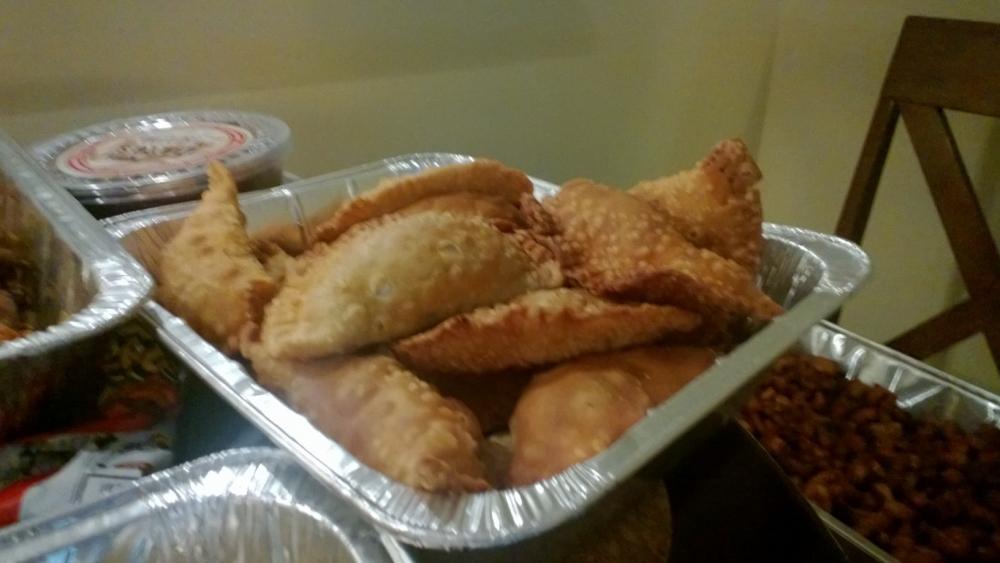
Section Branding
Header Content
Ramadan Iftar Via West Africa
Primary Content

Muslims all over the world host dinners called iftars to break their daily fasts during the month of Ramadan. They’re held at restaurants and in private homes. One Muslim couple living in Atlanta mix West African traditions from their native Guinea with Muslim rituals for Ramadan.
It’s 6 p.m. on a Saturday evening, and Abdel Camara and his wife, Housseinatou, are surrounded by pots and pans.
“We’re in my apartment getting ready to host my annual iftar,” he says, as his wife Housseinatou sits on the floor preparing food.
They’re expecting between 30 and 40 people.
“I’m not 100 percent sure yet. Thirty people are confirmed!” he says. “We’re going to have couscous, Moroccan couscous. We’re going to have something called attiéké. It’s specific to West Africa.”
Housseinatou and her sister, Nafi, are making the sauce for the attiéké, which they grew up eating in Guinea. It’s a mix of onions, tomatoes, cucumbers, vegetable oil and vinegar.
They debate – in English and their native tongue, Mandingo -- how to say the dish’s main ingredient. Is it a yam? Housseinatou and Abdel say no but Nafi says yes.
“It’s not yam. This is a yam,” Housseinatou says, holding up a yam. “Let me find the name.”
Housseinatou Googles the English translation for the root vegetable they’re cooking.
“It’s cassava!” she shouts. “It’s cassava. We also eat a lot of cassava in West Africa.”
She’s already cut the onions for the dish. Now it’s time for something called Maggi cube.
“She’s going to put some oil on that and then this thing,” Nafi explains, holding up what looks like a bullion cube. “It’s called Maggi cube. It’s seasoning. It’s from Africa. It’s salty. We put it on everything.”
The trio wraps up dinner preparation, as friends begin to arrive. Abdel covers the dishes with aluminum foil and starts taking them down to the common room in the basement where they will host the iftar.
Finally, after 14 hours without food or drink, Abdel says it’s time to break the fast. Or is it?
“It’s time right? Can someone confirm?” he says to friends in the common room.
“No, it’s not time,” a friend shouts.
“My phone tells me it’s time,” Abdel says.
“No, we got one minute. One minute.”
Alright, so that was a false alarm! But now it’s time. Really.
“It’s time! It’s time!” Abdel shouts above the din in the common room.
Now the Camaras and their guests can eat. Abdel makes his way through the buffet and takes a little bit of everything.
“This is the couscous, a traditional Moroccan dish. Start with that. Some eggs,” he says. “We’ll also have a little bit of the attiéké that we made earlier. This is my favorite: the fried plantains. That’s what I eat a lot of. Grilled steaks – traditionally this is what goes on top of the couscous. And then my other favorite dish: the tilapia. And the some grilled chicken. I think I have a little bit of everything now.”
Abdel’s plate is heaving. But his eyes may be bigger than his stomach.
“You can’t have too much of anything because your stomach is really small,” he says.
Abdel sits down and digs in. Next up: dessert. And then some rest.
Tags: Muslims, Ramadan, break the fast, iftars, month of Ramadan, Muslims in Atlanta, West Africa, Guinea
